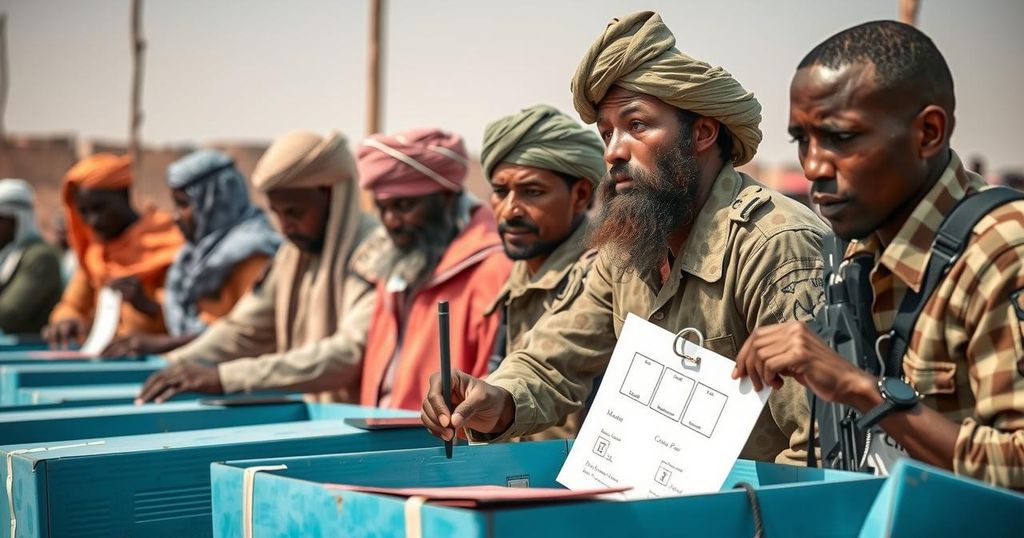Chad’s Military and Nomads Participate in Controversial General Elections

Chad’s military and nomadic communities voted early in elections framed as crucial to democratic transition, despite opposition boycotts labeling them a sham. Initial reports indicated a turnout of about 45%, focusing on pressing community issues exacerbated by climate change. The elections occur against a backdrop of instability and security challenges, raising questions about their legitimacy and effect on Chad’s future governance.
Chad’s military and nomadic populations commenced voting on Saturday in general elections, framed by President Mahamat Idriss Deby Itno as a pivotal step toward democracy, albeit amid opposition boycotts. On Sunday, regular citizens will have the opportunity to vote for a national parliament, local councils, and regional assemblies. However, logistical considerations necessitated that military personnel and nomads cast their votes a day early. The opposition claimed the elections lacked legitimacy, with the prominent Transformers party advocating a boycott. Initial estimates indicated a turnout of approximately 45% among both nomadic and military voters by midday. Election officials reported normal voting procedures, with military personnel participating without restriction. In the nomadic camps, representatives voiced concerns regarding the adverse impacts of climate change on their communities, further emphasizing the need for elected officials to address their living conditions. This electoral process occurs against a backdrop of ongoing unrest due to Boko Haram’s activities in the Lake Chad region, the cessation of military agreements with France, and allegations of Chad’s involvement in the Sudan conflict. President Deby, who succeeded his father following his untimely death and previously secured a five-year presidential term last May, aimed to utilize these elections to further the country’s transition to democratic governance. Notably, legislative elections in Chad have not been held since 2011, with numerous postponements attributed to jihadist threats, financial constraints, and the COVID-19 pandemic.
Chad, situated in the Sahel region of Africa, has faced prolonged political instability following the death of long-serving President Idriss Deby Itno in 2021. His son, Mahamat Idriss Deby Itno, ascended to power amidst a fragile security environment marked by threats from extremist groups like Boko Haram and the complex interplay of regional conflicts, particularly in Sudan. The current general elections represent a critical juncture for Chad as the government seeks to transition from a military-led administration to a democratic framework. However, the widespread opposition boycott indicates significant distrust in the electoral process, raising questions about the legitimacy and effectiveness of the forthcoming results.
In conclusion, Chad’s ongoing general elections—marked by military and nomadic participation—highlight significant political dynamics within the nation. Despite the government’s portrayal of the elections as a move toward democracy, widespread opposition boycotts and skepticism regarding their legitimacy are prevalent. The electoral process occurs amidst pressing socio-economic challenges faced by nomadic communities and ongoing security threats from extremist groups. The results of these elections may determine the trajectory of Chad’s political landscape as it seeks to stabilize and address critical issues affecting its populace.
Original Source: www.barrons.com






